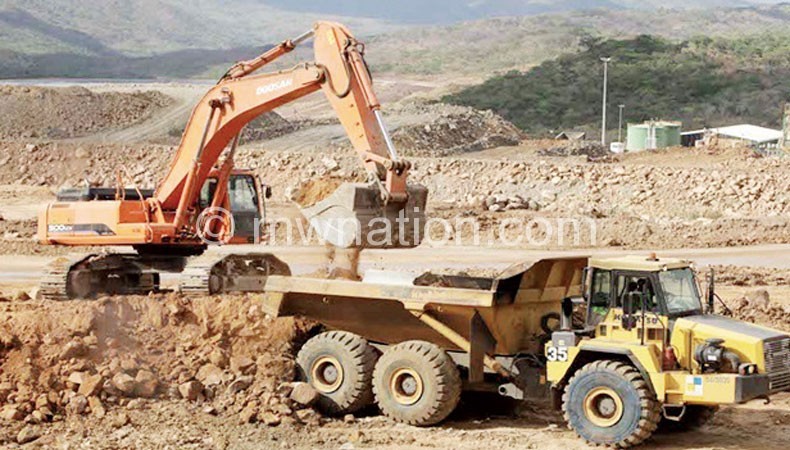On current mining practices in Malawi (Part II)
Last year there was a devastating mining spill at the Mount Polley open-pit gold and copper mine in British Columbia, Canada. The tailings—sections that store mining waste products—of the mine broke. This resulted in waste water, which was high in heavy metals and other toxins, spilling out and contaminating local ponds, rivers and lakes. The results have been disastrous, and it will take years to clean up the damage.

Shortly after the disaster, an expert review panel was convened to investigate the situation and provide recommendations. The panel determined that the tailings were poorly designed. Their findings have sent a ripple throughout the mining world as there are many other mines with similar tailing designs globally. This means that more failures are on the horizon if not promptly addressed.
Fortunately in Canada, the Canadian government has responded to the outcry of its citizens to thoroughly and proactively address the situation. The government will not only address the Mount Polley disaster but will also review all similarly designed open-pit mines in the country. The mines will be mandated to either re-design or close if they cannot meet all of the panel’s recommendations.
We can also learn from South Africa. The Merriespruit tailings dam failure disaster of 1994 killed 17 people and injured 350, with 1 500 losing their homes and possessions. The mud rush from the dam lasted for only 15 minutes, but its effect was heartbreaking and devastating, leaving tragedy in its wake. In light of this disaster, the government of South Africa ordered a review of the regulations governing the design of tailings dams and the mine operations in general. The result was the amendment of the existing acts, laws and regulations. The law now places full accountability on mines’ management for any harm, injury, damage to property and the environment. The obligation is on management to take steps to prevent any occurrence that may cause harm, injury or damages.
While the Kayelekera Uranium Mine in northern Malawi has not yet had a disaster of the same magnitude as the Mount Polley mine in Canada or Merriespruit in South Africa, it is obvious that the open-pit uranium mine – including its tailings storage system – is posing similar and other dangers. With telltale signs already visible, a disaster is waiting to happen. In 2014, there was not only a breach of the tailings storage systems with radioactive waste materials leaking into local water sources, some pollution also occurred. Personnel have also been injured since mining operations were commissioned. Therefore, now is the time to review the mining activity at Paladin’s Kayelekera Mine in Malawi before more damage is done and more personnel are harmed.
Like Canada, Malawi should take heed of the aforementioned panel’s findings and the steps South Africa and other mining countries have taken to be more proactive and hold Paladin accountable to either fix the mine to meet all international standards (and any revised recommendations resulting from all other disaster investigation findings on tailings storage systems in open-pit mines) or safely close the mine. The mine cannot continue business-as-usual while serious dangers are lurking to harm people and the environment, where the effects will linger on long after the mining of uranium is done.
As we had noted in our previous article in The Nation, published on February 6 2015 and titled Uranium mining, Health and Politics, a moratorium is in order. The Malawi government should ensure, through its laws and the enforcement of its laws, that international corporations, like Paladin, practise the highest and best standards and are always held accountable for their actions. A moratorium would allow for a much-needed third-party review of the mine and have adjustments made to comply with international standards, regulations and best practices and meet context-specific needs (e.g., be designed safely for the local environment). It is not an overstatement to say that lives are at stake. Like the Canadians and South Africans, Malawians deserve respect and should not be put needlessly at risk. Malawi mining activities should be re-evaluated and a first step is to pause Paladin’s activities at Kayelekera.
*About the authors: Nadi Kaonga is an MD/PhD candidate at the Tufts University School of Medicine, has an MHS from the Johns Hopkins Bloomberg School of Public Health and is an independent public health consultant. Gilead Mtegha is a practising engineer with 20 years mining operations and mineral processing experience. Based in South Africa, he now specialises in developing mineral processing plants and infrastructure for new mines in Africa. Jenik Radon is an international lawyer who represents governments and the public sector around the world and is an adjunct professor, Columbia University, School of International Public Affairs. – By Nadi Nina Kaonga, Gilead Mtegha and Jenik Radon*





